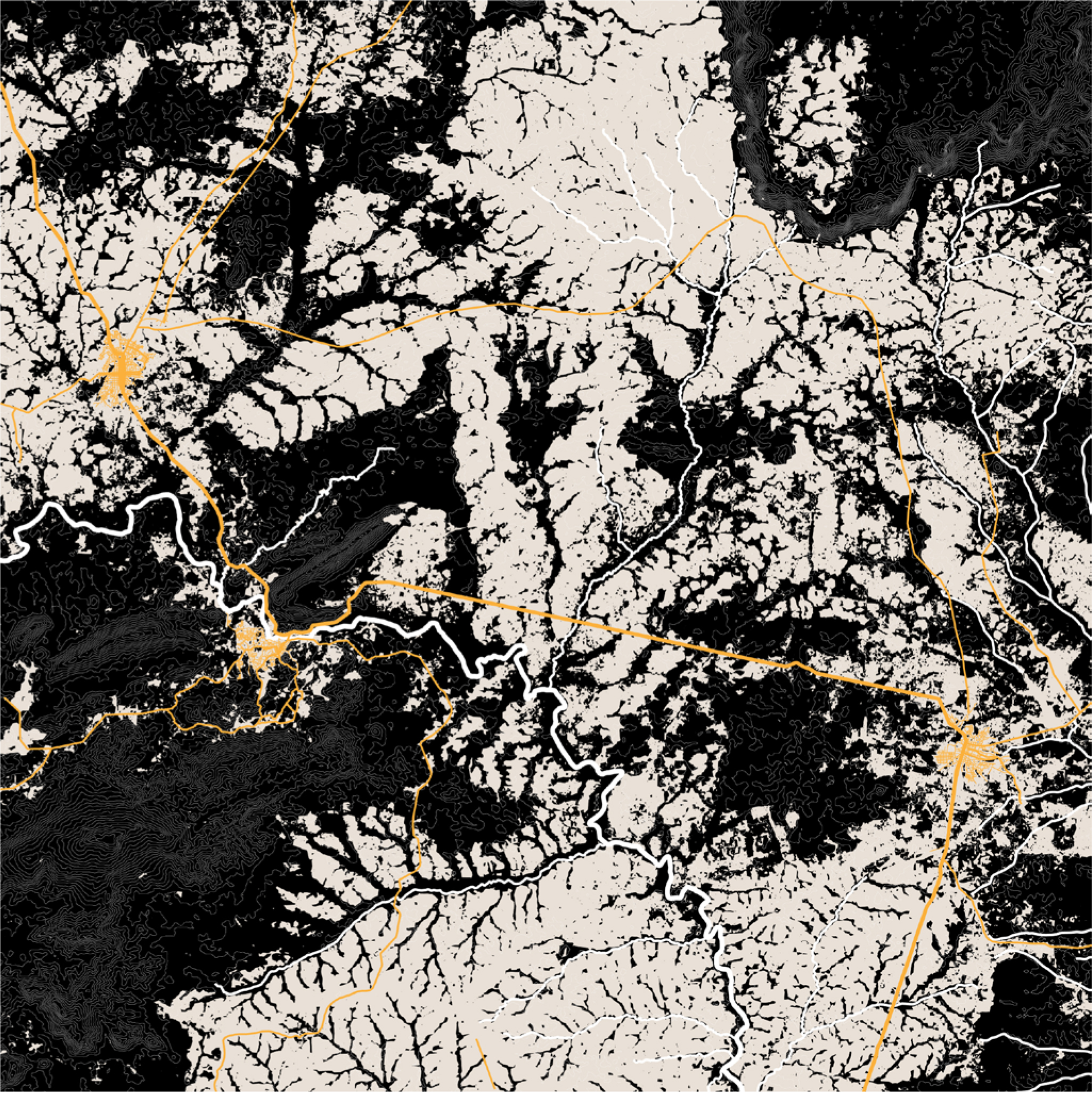Ricardo Avella
Overcoming the Paradox of Plenty: Resource Extraction and Urbanism in the Venezuelan Guayana

When a country depends exclusively on the extraction of non-renewable resources it faces a wide range of risks that can be extremely difficult to manage, since they are created by powerful external factors. And Venezuela, a nation that has mainly depended on oil and mineral extraction since the 1920s, has not been the exception. In recent years, and pushed by the drop of oil prices, the Venezuelan government decided to shift its attention from the oil fields of the country to the tropical forests of the Venezuelan Guayana, where large deposits of iron, bauxite, gold, diamonds, coltan, and many other rare minerals can be found. Thousands of people, especially in neglected and peripheral areas, have found a way to survive the crisis by working in the gold mines. This work seeks to explore the spatial dimension of this problem in the Venezuelan Guayana, to understand if the restructuring of the territory can create the conditions for the generation of alternative economies from the bottom-up and reduce the current dependence of the region on resource extraction.